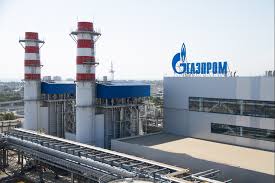China’s state refiners are honoring current Russian oil contracts but avoiding new ones despite deep discounts, heeding Beijing’s demand for prudence as western sanctions against Russia for its invasion of Ukraine grow.
According to the sources, state-run Sinopec, Asia’s largest refiner, CNOOC, PetroChina, and Sinochem have kept away from trading fresh Russian shipments for May loadings due to the sensitivity of the subject.
After Washington banned Russian oil last month and the European Union placed sanctions on leading Russian exporters Rosneft and Gazprom, Chinese state-owned enterprises do not want to be perceived as blatantly supporting Moscow by buying large volumes of oil, according to two sources.
“SOEs are wary because their acts could be interpreted as representing the Chinese government, and no one wants to be singled out as a Russian oil buyer,” one of the sources said.
Sinopec and Petrochina did not respond to requests for comment. A request for comment from CNOOC and Sinochem was not immediately returned.
China and Russia have grown increasingly close in recent years, announcing a “no limits” alliance in February, and China has declined to condemn or label Russia’s actions in Ukraine as an invasion.
China has frequently criticized Western sanctions against Russia, despite a senior ambassador saying on Saturday that Beijing is not intentionally evading sanctions.
China, the world’s largest oil consumer, is Russia’s major customer of crude, importing 1.6 million barrels per day, half of which is delivered via pipelines under government-to-government agreements.
China’s state-owned enterprises are expected to honor long-term and existing contracts for Russian oil but avoid new spot purchases, according to sources.
After Russia invaded Ukraine on February 24, a drop in Chinese imports of Russian oil could lead the country’s massive state refineries to seek alternate sources, contributing to global supply concerns that drove benchmark Brent oil prices to 14-year highs near $140 per barrel in early March.
After the US and its allies announced plans to release stocks from strategic reserves, Brent futures have since fallen below $110.
‘RISK CONTROL AND COMPLIANCE ARE THE FIRST PRIORITIES’
Prior to the Ukraine crisis, Russia provided 15% of China’s oil imports, half via the East Siberian and Atasu-Alashankou pipelines and the rest via tankers from its Black Sea, Baltic Sea, and Far East ports.
Unipec, Sinopec’s trading arm, and a major Russian oil customer have cautioned its global teams about the dangers of dealing with Russian oil in regular internal meetings in recent weeks.
One of the insiders briefed on the discussions stated, “The message and tone are clear – risk control and compliance come before profitability.”
“Although Russian oil is extremely cheap, there are a number of challenges, such as obtaining shipping insurance and dealing with payment concerns.”
Another source, who works at a refinery that processes Russian oil on a daily basis, claimed Unipec urged his unit to locate a replacement in order to maintain normal operations.
“There will be no additional Russian oil beyond the shipments that came in March and are slated to arrive in April,” claimed this person.
According to merchants and shipping statistics, Unipec loaded 500,000 tonnes of Urals from Russia’s Baltic ports in March, the greatest volume in months, provided on spot by Surgutneftegaz and under a Rosneft export tender that Unipec won for loadings between September 2021 and March 2022.
Two April-loading shipments totaling 200,000 tonnes from Russian producer Surgutneftegaz will be its latest Urals agreements, according to two dealers with knowledge of the deals.
According to reporters, India has booked at least 14 million barrels of Russian oil, or around 2 million tonnes, since February 24, compared to over 16 million barrels for the entire year of 2021.
Other state buyers, including PetroChina, CNOOC, and Sinochem, have avoided Russia’s ESPO blend for loading in May, according to sources.
According to the second source, Sinopec is having payment issues even for deals that were already agreed upon, as risk-averse state banks aim to reduce funding of Russian oil-related deals.
DEALS ARE KEEPING TEAPOTS ‘UNDER WRAPS’
Sanction fears have caused several independent refiners known as teapots, which used to be a vibrant group of clients who consumed roughly a third of China’s Russian oil imports, to disappear.
“Trading on the ESPO was extremely slow and covert. Deals are being made, but the specifics are being kept under wraps. Nobody likes to be caught in the act of buying Russian oil in public “According to a regular ESPO dealer.
These nimble refiners are adopting alternative payment systems like cash transfers, paying after cargo is delivered, and using Chinese money to keep oil flowing.
In May, independent producers represented by Swiss trader Paramount Energy and Russian suppliers Rosneft, Surgutneftegaz, and Gazprom Neft are expected to ship a record 3.3 million tonnes of ESPO from Kozmino port.

















